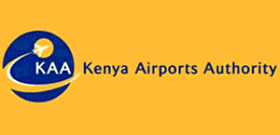Uganda's Tourism Future at Risk: Minister Warns of Rapid Disruptions
Uganda's Tourism Minister, Tom Butime, has issued a stark warning: the country risks losing its competitive edge in the global tourism arena if it fails to adapt swiftly to the profound disruptions reshaping the sector. Speaking at the launch of Uganda's renewed tourism policy, Butime underscored the critical need for change, citing rapid transformations driven by technology, climate change, global emergencies, and the continually evolving expectations of travelers. He emphasized that the international and continental competition for tourists has intensified, asserting that only destinations that innovate, invest, and adapt will emerge as future leaders.
The newly unveiled policy is strategically designed to fortify Uganda's tourism sector against the various shocks that have destabilized global tourism in recent years, including widespread pandemics, economic downturns, and geopolitical tensions. Its overarching framework aims to cultivate greater resilience, competitiveness, and sustainability within the industry, thereby safeguarding it from emerging risks. Minister Butime stressed that Uganda's inherent advantages, such as its rich biodiversity, stunning landscapes, vibrant cultural diversity, and renowned hospitality, are no longer sufficient on their own. He cautioned that "Potential is not progress," urging for significantly increased investment, diversified product development, and enhanced visitor experiences to translate potential into tangible growth.
Butime highlighted the imperative for Uganda to assert its presence in a global industry that generates an estimated USD 11 trillion annually and creates millions of jobs worldwide. The new policy aligns seamlessly with key national commitments outlined in the NRM Manifesto, the National Development Plan IV, and the ambitious Tenfold Growth Strategy. He specifically identified Meetings, Incentives, Conferences, and Exhibitions (MICE) as a high-value segment that Uganda must vigorously exploit, describing the upcoming AFCON 2027 as a "generational opportunity to showcase Uganda to the continent and the world." Furthermore, he noted that the new Hoima stadium would significantly boost sports tourism, while cultural heritage, exemplified by the unique "Kasun," represents an unparalleled selling point. The minister also pointed to Uganda's youthful population as a dynamic and innovative workforce capable of driving growth in digital tourism, entertainment, and hospitality. Peace and stability, he reiterated, remain foundational to maintaining Uganda's positive global image, reassuring investors and visitors alike with the ongoing peaceful electoral cycle.
In a move towards diversification, Butime identified new avenues for growth, including sports, agriculture, education, research, and water-based tourism, highlighting Uganda's vast lakes, rivers, and wetlands as untapped opportunities. He also referenced Namugongo as a pivotal destination for faith-based tourism, showcasing the breadth of Uganda's offerings.
Adding to the discourse, Doreen Katusiime, Permanent Secretary in the Ministry of Tourism, Wildlife and Antiquities, affirmed that the new policy provides the essential strategic framework needed to accelerate Uganda's economic transformation and secure its position among Africa's leading destinations. She eloquently described tourism as "a powerful engine intricately linked to our highest national aspirations," emphasizing the policy's centrality to achieving Vision 2040 and the targets of the National Development Plan IV, while also operationalizing the government's Tenfold Growth Strategy. Katusiime reiterated Uganda's unmatched natural endowments, from its majestic wildlife and verdant landscapes to the iconic River Nile and rich cultural heritage, all of which firmly position the country as a premier destination.
However, Katusiime echoed the sentiment that these inherent strengths have not been fully utilized. She cautioned, "Yet to move from that potential to prosperity, we must address persistent challenges of infrastructure, regulatory frameworks, limited investment, and more." The policy, she stated, commits the government to "strategic, coordinated interventions to move Uganda decisively toward being among Africa's top five tourist destinations." She underscored that tourism's acknowledged potential to create jobs, drive foreign exchange earnings, and empower communities has long been underutilized. The new policy, therefore, represents a clear and resolute commitment to confront these constraints head-on. Aligned with the East African Community Tourism Protocol and the UN Sustainable Development Goals, the framework is anchored on the principles of sustainability, inclusivity, innovation, and competitiveness. Katusiime concluded by acknowledging the private sector as "the key engine of investment and innovation" and extended gratitude to development partners, including the World Bank, for their "unwavering support," along with local communities, whom she recognized as "the ultimate custodians as well as beneficiaries of our natural and cultural heritage."
You may also like...
Star Wars' Original Inspiration Gets Shocking Amazon Remake!

MGM+ is bringing a new eight-episode drama, "The Magnificent Seven," to screens, featuring Oscar nominee Matt Dillon as ...
Netflix Pirate Epic Smashes Barriers: First-Ever Theatrical Release for 86% RT Hit!

The second season of Netflix's live-action 'One Piece' is set to premiere on March 10, 2026, with a special theatrical f...
Childhood Feud Confirmed: Hilary Duff Admits Crashing Lindsay Lohan's Premiere!

Hilary Duff has finally confirmed that she intentionally attended Lindsay Lohan's <em>Freaky Friday</em> premiere in 200...
Kelce Spills Secrets: What Taylor Swift Is Up To In Offseason!

Travis and Taylor Kelce, known as 'Tayvis,' have been enjoying their offseason, watching the Winter Olympics and celebra...
Asa's Latest Style Statement: White Macramé & Silver Fringe Steal the Spotlight

Singer Asa recently broke her social media silence by sharing captivating new photos on Instagram, showcasing her signat...
Tiwa Savage Makes Waves with New Music Foundation & Berklee Partnership

Inspired by her own scholarship experience, Tiwa Savage has launched the Tiwa Savage Music Foundation to empower the nex...
Crisis Deepens! Air Botswana's Fleet Shrinks to Just Two Aircraft Amid Critical Challenges!

Botswana's national airline, Air Botswana, is struggling with just two serviceable aircraft, severely impacting its netw...
Kenya's Ambitious Vision: Nairobi's JKIA Set for Massive Transformation into a Modern Hub!

Nairobi's Jomo Kenyatta International Airport is set for a major $2 billion state-driven transformation, aiming to becom...